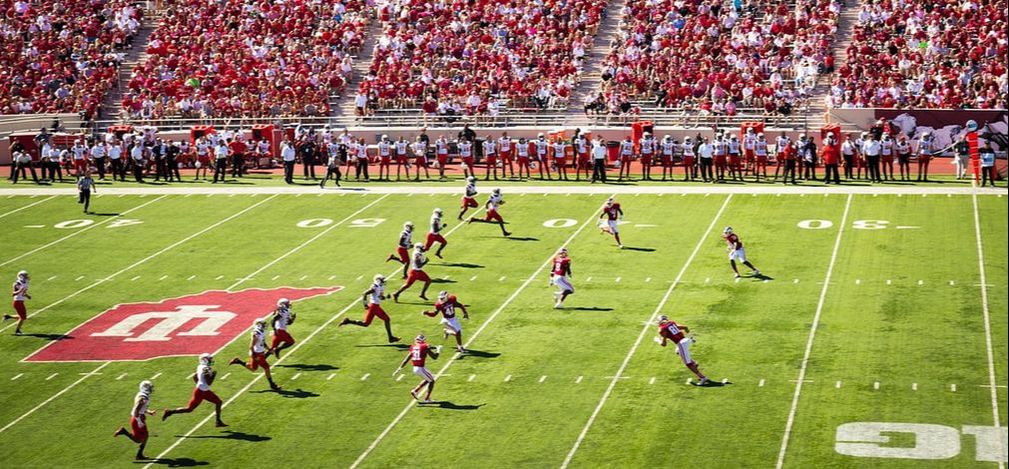|
Does employee compensation level influence their future treatment by organizations? A recent study examining players in the NFL sought to understand if players in which organizations had made a greater financial commitment received preferential treatment through more game time. The results indicated that higher compensated players did receive more game time but were no more productive on the field that than their lower compensated colleagues, suggesting that their additional game time was related to bias due to the investment the team had made in them.
Key Topics: Compensation bias; Employee performance
Title of Reviewed Article: The Sunk-Cost Fallacy in the National Football League
Researchers: Quinn A. W. Keefer (California State University San Marcos). Publication: Journal of Sports Economics, 2017, Vol. 18 No. 3, pp. 282 - 297. __________________________________________________________________________ Setting the Scene Research has shown that when people invest more money in something they tend to treat it with more importance. For example, researchers found that when theatre tickets were more expensive, individuals who bought those tickets were more likely to attend the show, than individuals with less expensive tickets (Arkes & Blumer, 1985). Similarly, research on companies indicates that when funds have been allocated to specific projects there is an escalation of commitment in those projects such that future additional fund allocation is more likely (Staw, 1976). Examining NBA team compensation, Staw and Hoang (1995) found that the level of investment in a player had a significant effect on their playing time and retention in the team. The current study sought to build on prior research on the relationship between financial commitment to employees and future treatment of those employees by examining the role that player compensation levels had in playing time decisions made by teams in the National Football League (NFL), in order to determine if a larger financial commitment in players leads to future bias on how those players are treated. How The Research Was Conducted In order to examine the relationship between compensation and productivity (based on games played and number of plays per game), the researchers analysed NFL players based on the round in which they were picked in the NFL draft. The NFL draft involves NFL teams choosing amateur players in a seven-round format each year. Players picked in the first round of the draft typically receive significantly more compensation than those picked in later rounds. This study compared all players drafted in the first two rounds of the NFL draft between 2002 and 2009, focusing on offensive-skilled positions. Key Findings and Practical Implications The study found there to be a significant relationship between player compensation and the number of games a player started. The results indicated that a 7% increase in compensation corresponds to one additional game started, while a 10% increase in compensation yields 2.7 additional games started. Interestingly, higher compensated players, who played more games, were no more productive than lower compensated players, as measured by examining plays a player played per game. Therefore, while first round draft picks receive higher compensation than second round draft picks, which corresponds to them starting more games, they are no more productive when they play. The results indicate that, whether consciously or not, teams do consider investment in a player in their decisions regarding who plays. More broadly, the results support the notion that when companies decide to invest more financially in an employee it can bias future decisions regarding supporting that employee in making them successful in their job; potentially seeing such employees as too big to fail. This is consistent with prior research where companies made similar investments in employees, with studies indicating that management demonstrates greater commitment to employees they have previously promoted (Bazerman, Beekun, & Schoorman, 1982). __________________________________________________________________________ Source Article: Keefer, Q. A. (2017). The Sunk-Cost Fallacy in the National Football League. Journal of Sports Economics, 18(3), 282–297. Published by: SAGE Publications For further details and access to the full journal article Click Here (subscription or payment may be required). __________________________________________________________________________ References: Arkes, H. R., & Blumer, C. (1985). The psychology of sunk cost. Organizational Behavior and Human Decision Processes, 35, 124–140. Bazerman, M. H., Beekun, R. I., & Schoorman, F. D. (1982). Performance evaluation in a dynamic context: A laboratory study of the impact of a prior commitment to the ratee. Journal of Applied Psychology, 67, 873–876. Staw, B. M. (1976). Knee-deep in the big muddy: A study of escalating commitment to a chosen course of action. Organizational Behavior and Human Performance, 16, 27–44. Staw, B. M., & Hoang, H. (1995). Sunk costs in the NBA: Why draft order affects playing time and survival in professional basketball. Administrative Science Quarterly, 40, 474–494. Comments are closed.
|
|








